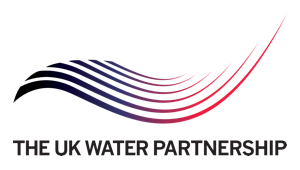The challenge
Clean drinking water is essential to life. However, there are many areas of the undeveloped world where people are still drinking water that is contaminated, either because the proper water infrastructure is not in place or because disasters, environmental and otherwise, have prevented access.
The challenge of bringing clean drinking water to all parts of the globe is an urgent problem, but conventional drinking water treatment systems use chlorine releasing agents for disinfection. This corrodes the membrane materials used for filtration of the water, making the long-term deployment of portable treatment systems in remote areas very difficult.
The solution
Researchers at UWE Bristol have developed a portable water treatment system capable of delivering clean drinking water at source. Contaminated water is pumped directly into a treatment system that uses a novel disinfectant and a state-of-the-art membrane filtration. From this, potable water that meets drinking water standards can be produced in a matter of minutes.
The novel fast-acting disinfectant, developed in partnership with UWE Bristol and UK industry partners Bridge Biotechnology Ltd, limits the corrosive effects on the membranes over time whilst killing any bacteria that may be present in the water.
Leader of the research team, Professor Darren Reynolds, says “the first stage of our project has resulted in the production of 2 cubic metres of drinking water in a 12 day period. This may not seem like a huge amount, but put into context, humans need a minimum of two litres of drinking water a day which is less than one cubic metre a year. Key to this project is the novel biocide that we have developed that does not corrode like chlorine.”
The team has been working with UK industrial partners Portsmouth Aviation, an engineering manufacturing company and Bridge Biotechnology Ltd (who provide the technology for biocide production). In addition, the project involves Pentair Ltd a global supplier of membranes for industrial applications. The next phase of the project is to upscale even further and test these systems in the field.
Resulting benefits
The treatment system being developed by UWE Bristol is relatively low cost, portable and capable of taking dirty water at source and filtering it in situ in a matter of minutes. Its novel biocide cleans the water but without the corrosive downside of chlorination.
Project partners Portsmouth Aviation, manufacturing specialists, have already developed and manufactured water purification systems as standard 20ft transport containers making each unit easy to transport by road, ship or train. Currently, such units are capable of producing up to 6 cubic meters of water every hour. Already project partners Portsmouth Aviation have attracted substantial interest from countries all over the world interested in providing off grid solutions for the provision of clean drinking water.
Future directions
The aim is to manufacture portable systems that can produce up to 18 cubic meters of drinking water every hour and that can also deal with water contaminated with inorganic material such as metal contamination and excessive nutrients. This could make a huge difference to the everyday lives of people in remote areas, and potentially during civil and environmental disasters.
No references provided.
Customer:


![]()

Sources of funding
No details provided.




















 The Water Security Knowledge Exchange Portal supports the objectives of the
The Water Security Knowledge Exchange Portal supports the objectives of the 